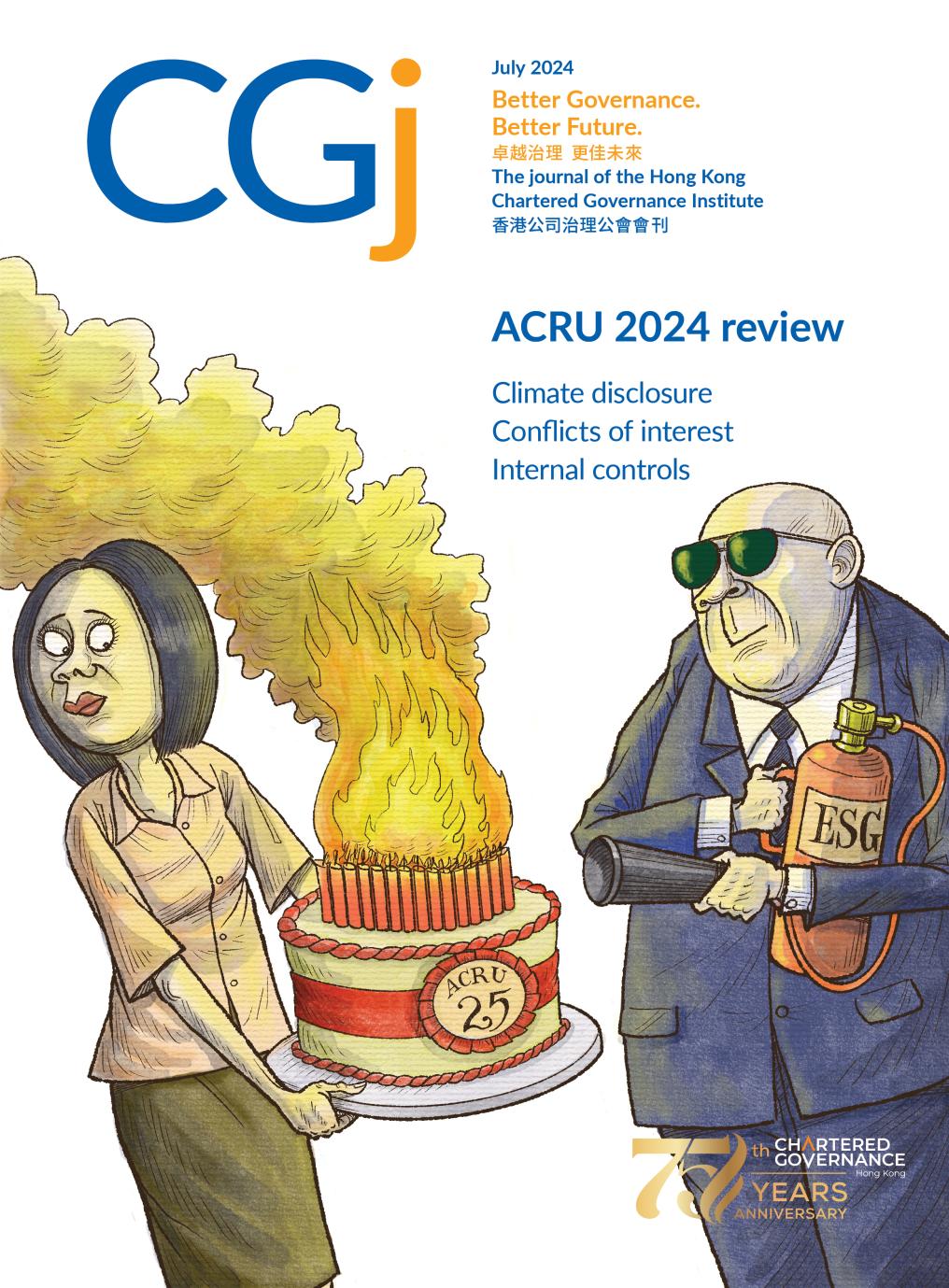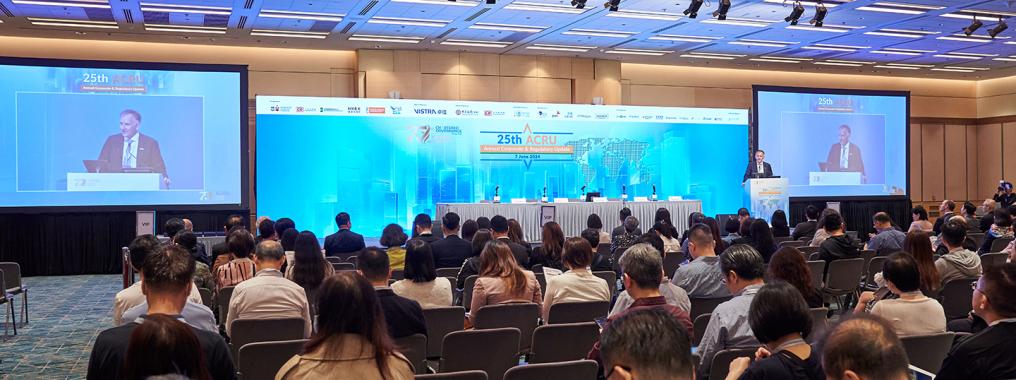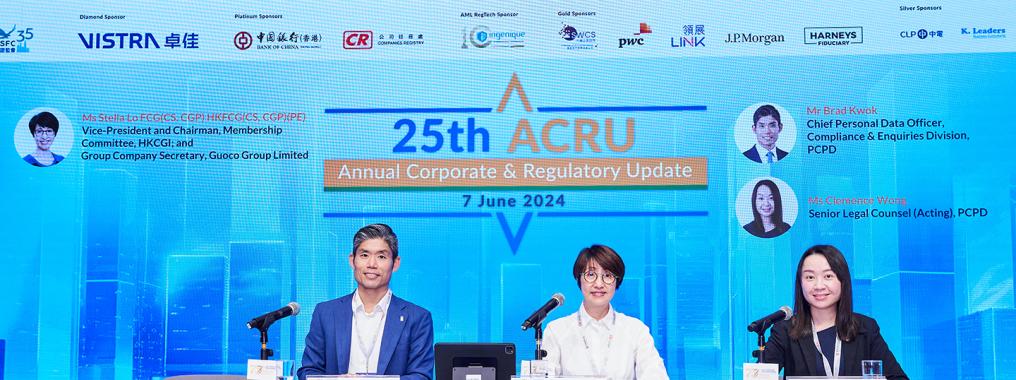
ACRU at 25
Before turning to the theme of this month’s journal, I’d like to update you on a major innovation that our Institute will be launching later this month. On the back of the success of our ESG Reporting Certification Course, we recognise that there is a need in the market for a professional body for those involved in sustainability policy and practice in Hong Kong, the Chinese mainland and beyond. Our Sustainability Governance Academy will be the first of its kind in Hong Kong and represents no small achievement for our Institute. It will not only facilitate expertise sharing and training, but will also provide a voice for those working in sustainability locally and in the wider region. I am very excited to see this innovation become a reality and hope to see you at the launch on 31 July 2024 at the HKEX Connect Hall.
This month’s CGj covers our latest Annual Corporate and Regulatory Update (ACRU), which celebrates its 25th birthday. As one speaker at this year’s event pointed out, 25 years ago emails were still a novelty and around 40% of the world’s population was yet to be born. Many speakers commended the Institute on its quarter-of-a-century track record in hosting this dialogue.
Over the years, ACRU has tracked how governance and compliance expectations have been changing. One salient trend – no surprises here – is that today anyone involved in governance, risk and compliance work needs to stay up to date with a much more extensive spectrum of issues than they did a quarter of century ago. Back then, our members were more narrowly focused on the listed company sector and our 25th ACRU is a clear demonstration of the degree to which that core scope of practice has expanded to include a broad range of sustainability and technology issues.
This year’s ACRU, for example, included an update on the new climate-related disclosure requirements about to be implemented under Part D of the ESG Code in the Listing Rules, as well as an in-depth analysis of the potential risks involved in the artificial intelligence (AI) tools already commonly in use. In addition, the forum was able to cover a large variety of issues, including all the latest developments in competition compliance, corporate reporting, directors’ duties, company law reform, data security, data breaches, and ethics and anti-corruption.
Two other trends were in evidence at this year’s ACRU. The first is the degree to which regulators, both here in Hong Kong and also more generally in the region, have been collaborating to improve the efficiency with which they enforce the market rules. The second is the increased liability faced by directors, managers and professional practitioners with responsibilities for preventing fraud and malpractice. Speakers from Hong Kong Exchanges and Clearing Limited and the Securities and Futures Commission warned that, even where individuals are not directly involved in wrongdoing, they can be held accountable if they fail in their duties to maintain the appropriate internal controls.
In the context of the above trends, the work of governance professionals is a good deal more complex in today’s regulatory environment, but rest assured that the Institute is dedicated to supporting its members in rising to this challenge. We have continued to build and expand our professional development services. As well as the Academy mentioned above, we have launched new certification courses in both ESG and anti–money laundering and counter–financing of terrorism (AML/CFT). We have also launched a new Cantonese-based Foundation Course in Listing Rules compliance. That got underway at the end of last month and two further sessions will be held this month and in August.


